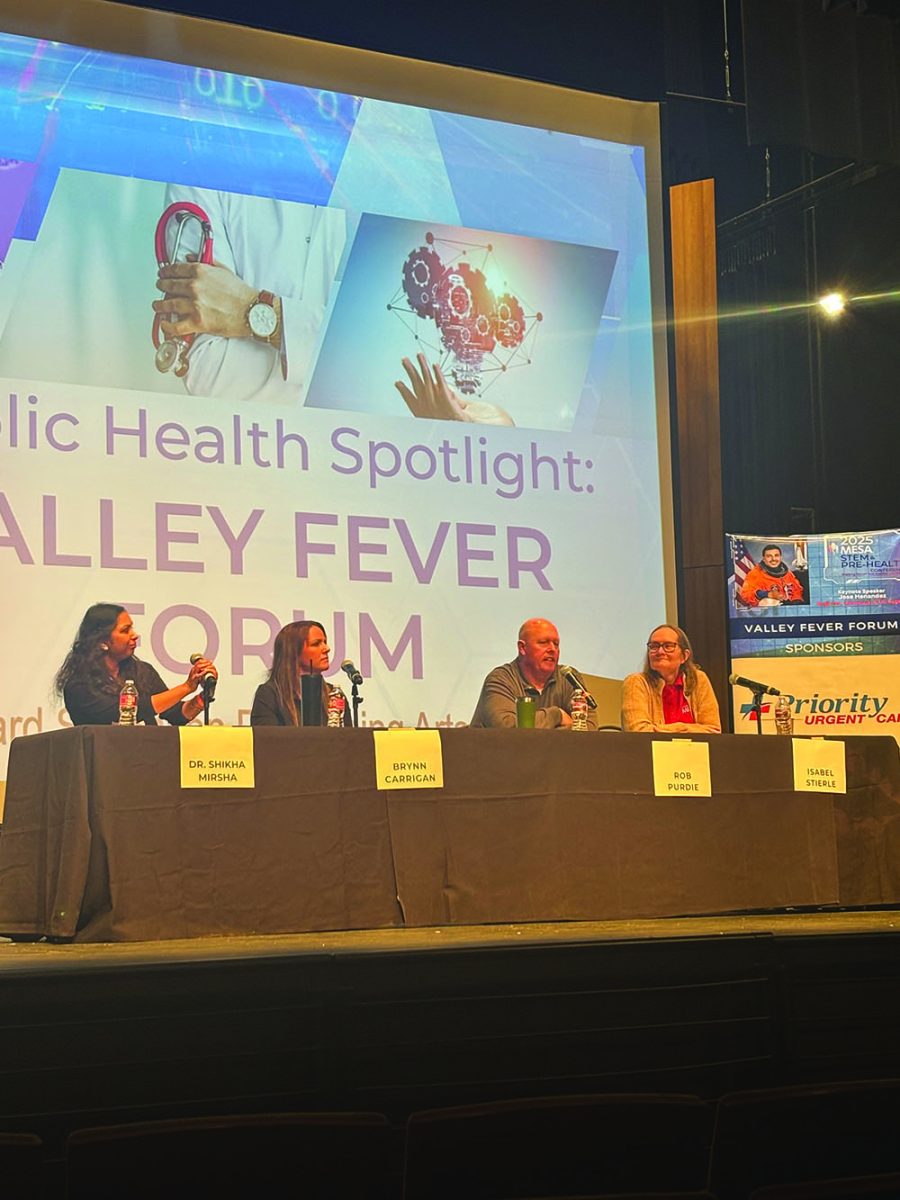CSUB holds panelists discussing the issue of homelessness in California
November 18, 2019
Cal State Bakersfield held a panel discussion titled “Homeless in Bakersfield: A Community Conversation” in the Dezember Reading Room located in the Walter W. Siren Library on Nov. 14.
Louis Gill, Executive Director of the Bakersfield Homeless Center, Shawn Morrissey, Director of Advocacy and Community Engagement at Union Station Homeless Services, and Dorothy Edwards, Enrichment Services Coordinator at Housing Works of California, were the panelists of the night sharing information on the growth of homelessness in California.
“It’s not an issue, it’s the issue affecting our state and effecting every major city,” Gill said. “This is a difficult thing. California holds 25 percent of the nation’s homeless population.”
Focusing on the rise in homelessness in Kern County, there has been a 50 percent growth in all unsheltered and sheltered homeless people since 2018. There are approximately 1,130 people who are homeless total, based on a point-in-time count, and more than half of them are not sheltered due to the lack of space the shelters have. The population has exceeded what shelters can provide by almost three times.
“One of the things to note, there is a disproportionate representation of African Americans in the homeless population. The African American population in Kern County is about six percent, and they constitute 15 percent of the homeless population,” Gill said.
Pasadena is one of the only cities in California that has had a decline in the number of the homeless population. The Union Station Homeless Services company works on ending homelessness and is based out of Pasadena.
“We had identified a motel in the eastern part of Pasadena […] the motel was particularly problematic, had a lot of issues around a lot of prostitution, police calls and things like that. What we were trying to do was purchase this motel and turn it into a really nice permanent supportive housing with all of the tentative, on-site, supportive services to really help solve this homelessness,” Morrissey, who is formerly homeless, said.
The project was not well-received by the public due to the unwanted idea of the homeless living in the motel, even though they already slept outside and around it.
Edwards was homeless in Pasadena as a result of domestic violence and lived a life of always being on the run. In the early 2000’s she met Morrissey who helped her find her footing and a roof over her head.
“Finally [the homeless shelter workers] caught up with me and said ‘Dorothy you don’t understand, we have a house for you,’ and they did. I lived there seven and a half years,” Edwards said.
When Edwards was first housed under the housing-first initiative, which gives homeless people the stability of a home before worrying about the trauma that caused their homelessness and was still addicted to drugs after living in the house for some time. An intervention was held for her by the shelter helpers and her landlord, which threatened her stability of staying in the house, Edwards said that she knew she had to change to not end up on the streets again. One of her greatest fears was that if she went back on the streets that her sister would go searching for her, only to find that she was dead behind a building in a dumpster.
She is now an inaugural graduate of the Corporation for Supportive Housing Speak Up Advocacy training program and advocates for people suffering on the street.





